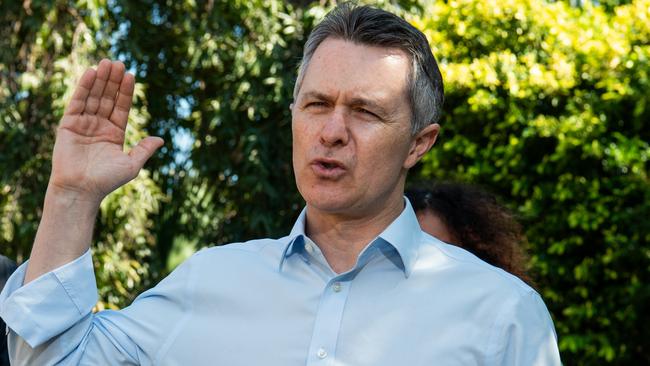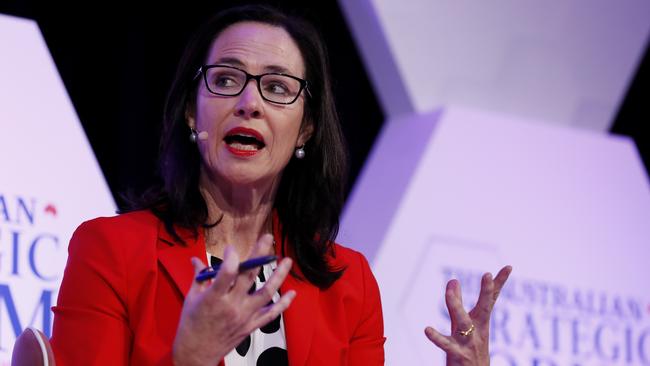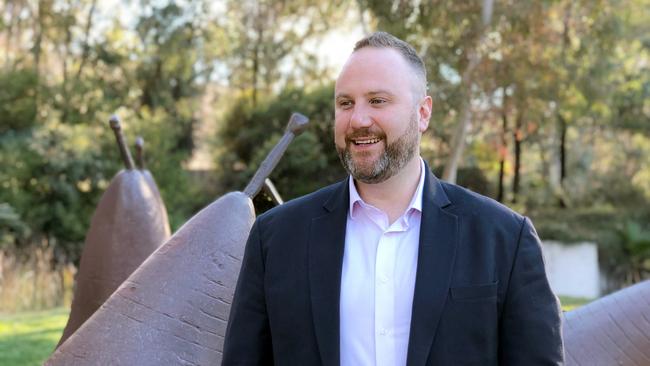Fraud and sex slaves: blitz on dodgy training colleges
Dozens of dodgy training providers have been shut down over ties to organised crime, fraud and bogus qualifications, as cash-starved universities threaten to sack staff.

Dozens of dodgy training providers have been shut down over ties to organised crime, fraud and bogus qualifications, as cash-starved universities threaten to sack staff.
Home Affairs officials have revealed that sex trafficking and slavery among international students – along with housing shortages – are the main reasons the Albanese government is rationing enrolments of international students in Australian universities, training colleges and schools.
The admission came as the Australian Skills Quality Authority told The Australian it was “actively managing more than 170 serious matters’’ involving 140 private non-university training providers.
An ASQA spokeswoman said 33 providers had been struck off the Commonwealth Register of Institutions and Courses for Overseas Students during 2023-24.
ASQA is still investigating another 140 colleges, including 60 per cent that deliver training to international students. “More than 70 per cent relate to alleged fraud, including bogus qualifications, cash for (qualifications), fabrication of assessments and evidence, ghost colleges, funding fraud and visa/migration risks,’’ she said.
Half ASQA’s investigations relate to the “disruption of criminal networks’’.
These include Operation Inglenook – a Border Force initiative to rescue students brought to Australia as sex slaves – and Fraud Fusion, a multi-agency taskforce to stop National Disability Insurance Scheme frauds.
ASQA’s crackdown coincides with federal government plans to ration the number of international students who enrol in individual universities and training colleges.
University vice-chancellors on Tuesday demanded that federal Education Minister Jason Clare back down on plans to slash foreign student numbers by January 1. “They are draconian, interventionist and amount to economic vandalism on the day when we’ve seen Wall Street suffer its worst result in two years, creating massive global economic uncertainty,’’ Group of

Eight chief executive Vicki Thomson told a Senate inquiry into the draft legislation on Tuesday.
“Let’s be clear, the archetype of shonks and crooks is not representative of the university sector, and certainly not the Group of Eight.’’
Ms Thomson said universities supported the government’s plan to crack down on compliance in the higher education sector but not to cap the number of international students.
Mr Clare said the government’s reforms would “ensure quality and integrity’’ in international education.
“Once the legislation passes, the intention is to set limits for every university, higher education and vocational education provider that educates an international student,’’ he said.
Universities Australia chief executive Luke Sheehy told the inquiry that 14,000 university jobs were at risk as a result of a 23 per cent drop in visas granted to fee-paying international students over the past year.
He said the reduction of 60,000 students due to start their studies next year “would represent a $4.3bn hit to the economy and could cost the university sector alone over 14,000 jobs’’.
The Home Affairs Department’s group manager of immigration policy, Tara Cavanagh, told the Senate hearing that two independent reviews had revealed exploitation of international students living in Australia.
She said there was evidence of “poor quality education products, false promises of pathways to permanent residence, sex trafficking, bonded labour and slavery-like conditions’’.
“Such activity and funding is supporting networks of criminal activity inside and outside of Australia,’’ she said.
“(The) reviews have shown there are large numbers of education agents and providers acting in collusion to lure young people to Australia with the promise of full-time work and not study.
“Those students have been found to have been enrolled in what are essentially ghost colleges.’’
Ms Cavanagh said Home Affairs had found unscrupulous training providers poaching legitimate students from universities.
“An (immigration) agent from another provider swoops on them, convinces them to change into a lower level course, channels them into full time work, puts in the system that the student is studying but in reality they’re enrolled in a ghost college and working often for very low wages,’’ she said.
The government’s legislation responds to growing public concern that soaring numbers of international students are pushing up rents in a cost of living crunch.

Immigration data shows that 780,104 international students are living in Australia – a 21 per cent surge in just 12 months, and 16 per cent more than pre-pandemic numbers.
The housing shortage is so severe that the University of Sydney is now appealing to its alumni to rent out their spare bedrooms to students struggling to pay commercial rents.
Alumni will be able to charge students $290 per week, without meals, or $360 a week for homestays including meals. Hosts will have to undergo criminal background checks and home inspections.
Chief University Infrastructure Officer Greg Robinson said the homestays could be a “rich cultural exchange of students and hosts’’.
“It’s essential our students can access safe and affordable housing,’’ he said.
The university announced its billeting program after it was exposed by National Union of Students national president Ngaire Bogemann during the Senate hearing in Canberra on Tuesday.
Ms Bogemman had described the rent-a-room scheme as a “horror story’’.
“At the University of Sydney, alumni have been asked to provide student accommodation in their own homes because there’s a lack of available beds close to campus,’’ she said.
“That is quite alarming and not something students should be pushed into.’’
National Tertiary Education Union public policy director Dr Terri MacDonald told the hearing that “bad actors’’ are cashing in on foreign students.
“International students are our second-largest group of migrant workers,’’ she said.
“They’re also most exposed to trafficking, wage theft and labour exploitation. With these factors in mind, many of the recent changes the government has made to international education are sensible and supported by the NTU.’’




To join the conversation, please log in. Don't have an account? Register
Join the conversation, you are commenting as Logout